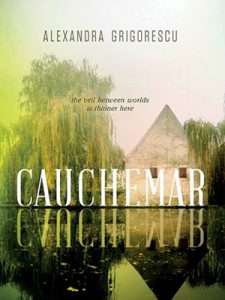Alexandra Grigorescu, 320 pgs, ECW Press, ecwpress.com, $18.95
Deep within the muck of Louisiana’s swampland, in an area rife with gloom and mysticism, within a musty old cabin sitting atop the boundary between the lands of the living and the dead, the 20-year old Hannah stands unbelieving in front of the body of Mae, her adoptive mother and only caregiver.
From the very beginning, Alexandra Grigorescu’s debut novel Cauchemar pulls the reader into the haunting desperation of the southern gothic. Without Mae’s protection, Hannah is unknowingly exposed to the dangers hiding beyond dense, dark forests and thick, murky waters. One of those dangers is her birth mother Christobelle, a mystic and heretical church leader maligned and feared by the community for her apparent association with dark magic. And, despite the warnings Christobelle gives her during Mae’s wake, Hannah attempts to begin a conventional life. She leaves the cabin to eventually find love with a boat captain and musician named Callum. Now pregnant, she must struggle to survive the seemingly-possessed and supernatural creatures of a swamp that threatens to swallow her and her unborn child whole.
What makes Cauchemar so effective—so ominous and creepy—lies in Grigorescu’s skill in setting a scene. There’s a convincing aura of melancholy and malevolence haunting Hannah’s world, as though “something’s wrong. It’s in the air, in the floorboards, everywhere. Everything feels threatening.” It all feels tangible, as if what’s imagined is made real by its persuasion over the human senses. This eerie sensory manipulation is made only more menacing by the company of frenzied cicadas, hostile crows and a mysterious albino gator visible only at the edge of Hannah’s vision. And it’s that ambiguity between the real and the imagined that makes Hannah’s nightmare—her cauchemar—more than just a simple bad dream. (Paul Rocca)

